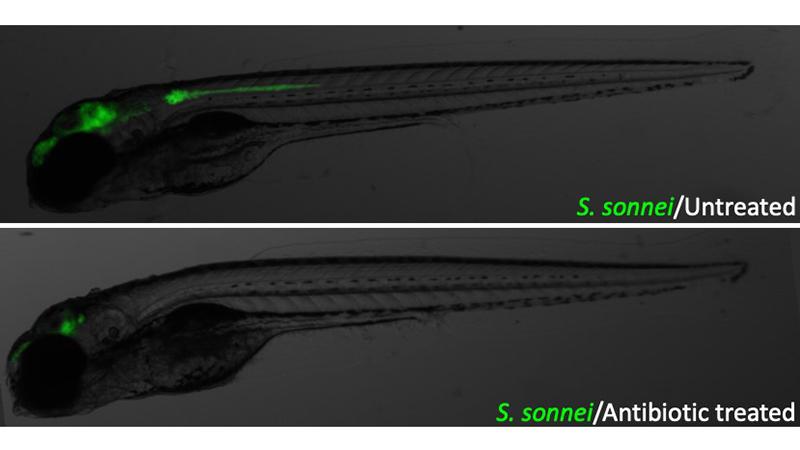Dr Vincenzo Torraca, Senior Lecturer in Microbiology and Co-course Leader for the Medical Sciences BSc Honours programme, has conducted research on how the bacterium Shigella can lead to persistent infections. The discovery is a result of a collaborative project with Serge Mostowy, Professor of Cellular Microbiology at the London School of Hygiene and Tropical Medicine. These findings may contribute to the development of new therapeutic approaches to combat shigellosis.

Dr Torraca’s research focuses on host-pathogen interactions, genomic epidemiology and antimicrobial resistance for globally relevant bacterial pathogens, including Shigella, E. coli, Salmonella and Mycobacterium. He uses a combination of wet lab, computational biology and model organisms to address how pathogens develop antibiotic resistance or establish long-term infections in their hosts.
Shigella is a diarrhoeal pathogen closely related to E. coli. It is normally considered to provoke acute self-limiting infections, which run their course without the need for external medical treatment, other than rehydration. Dr Torraca’s research made an important breakthrough: it presents the first evidence that this pathogen can persist in vivo, or within living organisms, for extended periods of time. These bacteria are not cleared by the host immune system and become tolerant to therapeutic doses of antibiotics.
Shigella is typically transmitted by ingestion of contaminated water and food or sexual transmission. It has multiple serotypes, or groups within a species of microorganisms that share a distinctive surface structure. Dr Torraca’s research found that the serotypes that persist within living organisms most efficiently are also the most commonly disseminated worldwide in humans. There is an association between the success of these specific Shigella serotypes, particularly a surface O-antigen, and their ability to establish persistent infections.
Dr Torraca said: “Shigella is an important human pathogen. It represents an antimicrobial resistance priority threat, and no vaccines are available. This work provides new information on how Shigella can spread in the human population by establishing persistent carriage. In the future, our discovery may contribute to the development of new treatments to combat shigellosis, for example by targeting the Shigella O-antigen variants that confer the ability to persist.”
An article detailing this research, Shigella Serotypes Associated with Carriage in Humans Establish Persistent Infection in Zebrafish, has been accepted for publication in the Journal of Infectious Diseases.
Learn more about Biological and Biomedical Sciences courses at the University of Westminster.



